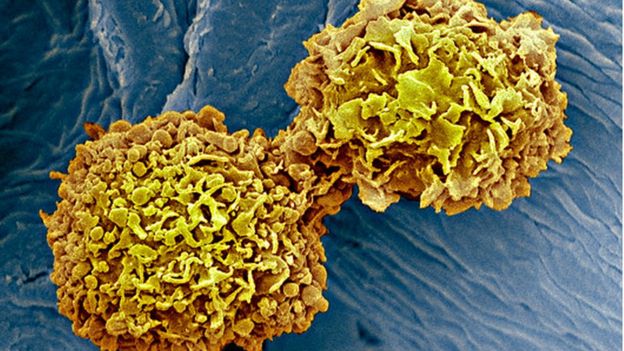 There's a massive, almost unprecedented for our times, health and economic crisis concerning the
There's a massive, almost unprecedented for our times, health and economic crisis concerning theupsurge of a viral pandemic (SARS-CoV-2) and everyone can read about it anywhere in the globe. Media are sucking dry this opportunity to report even on the minimal aspects to it related, some completely irrelevant, and some very well substantiated by reliable sources. Even though the numbers don't really add up when we cross-reference data obtained from different 'official' sources of information, it is almost impossible not to be adequately informed on the basics of its epidemiology, the impact on our financial systems and the different health aspects that relate immediately to covid-19 and us, patients.
Memes, images, funny videos, some outraged ones, a horde of multimedia interactions showing how the many different world populations are willing to respect the necessary quarantine/lock-down times, and also the typical uncivilised odd person breaking down with common sense and respect for others and going about their business with utter disrespect for the importance of (other) lives. Social networks and news web-platforms are populated with chronicles, speeches, conferences, discussions, forums, seminars, news; covid-19 has been distilled into so many formats that one can just find exactly what suits him/her best by picking from an immense pool of files left hanging around.
Some of the distributed information speculate on how the virus spread, from where it spread from, debate on whether the Chinese government could have done more to avoid the repercussions of a viral spread turned into global pandemic, if there was a laboratory manipulation, if we are facing a biological weapon or merely the result of ubiquitous 5G technology in our lives. I could add in with my contribution to the technicalities of any theory where arguments fade to black the moment they arrive to the geographical and IT borders of China. After that horizon line, it is all but speculation because we simply aren't allowed to know more for censorship is active in said confinement. In addition, I dislike conspiracy theories if their purpose is to cause mayhem and chaos rather than debating a supported plausible scientific possibility. When the idea starts with, so and so said, I heard from, I believe and there is nothing to substantiate one's idea, the best thing is to just not participate in the stupidification of the masses.
I have my own theory that goes well beyond a simple zoonotic vectorisation of a virus. It accounts for an intention, it accounts for a purpose, it accounts for sloppiness, it accounts for irresponsibility, it accounts for a tripartite strategy, it accounts for immediate results, mid- and long-term objectives, it accounts for a myriad of participating valences that determined the global diaspora of contagious proportions we are presently dealing with.
Having said that I am of the opinion that most news media and governments, health and civil stakeholders are integrally now focused in finding a solution for the problem either based on a) understanding the dynamics of this virus and associated disease, b) reducing the impact on global finances, and 3) understanding how we went from patient zero to the mess we have presently in hands and that is to remain for the months to come.
Maybe because we are still living through such turmoil where the immediate concerns are, keeping people safe, alive and financially afloat, no one has yet looked in-depth to the evident trigger of this whole issue and the unpreparedness of our governments to deal with a boisterous elephant in the room (since 2002/2003). This epidemic turned pandemic did not come without a warning, we had numerous situations where the scientific community had warned of the likelihood of such health threat to reoccur. The number of available articles published since 2012 (if not before that) provided such a long list of whistling alerts. I hereby paste just a few for the sake of the example. A few!, culminating in two that everyone is talking about these days and that surprisingly, or not at all, indicated Wuhan as the most probable source of this pandemic... whilst the final one denies (based on the limited information presently available) any laboratory manipulation of this virus as the origin of its infectivity:
2002/2003 - SARS-CoV-1 epidemic.
2012 - Butler, D. (2012). "Clusters of coronavirus cases put scientists on alert - Surveillance ramped up after novel virus is identified in three Middle Eastern countries". Nature, 492, pp. 166-167.
2013 - Pebody, R., Zambon, M., Watson, J. M. (2013). "Novel coronavirus: how much of a threat?". BMS, 346(1), pp. 1756-1833.
2013 - Nuttall, I., Dye, C. (2013). "The SARS Wake-Up Call". Science, 339(6125), pp. 1287-1288.
2013 - Breban, R., Riou, J., Fontanet, A. (2013). "Interhuman transmissibility of Middle East respiratory syndrome coronavirus: estimation of pandemic risk". The Lancet, 382(9893), pp. 694-699.
2015 - Yang, X-L., Hu, B., Wang, B., Wang, M-N., Zhang, Q., Wu, L-J., Ge, X-Y, Zhang, Y-Z., Daszak, P., Wang, L-F., Shi, Z-L, Perlman, S. (2015). "Isolation and Characterization of a Novel Bat Coronavirus Closely Related to the Direct Progenitor of Severe Acute Respiratory Syndrome Coronavirus". Journal of Virology, 90(6), pp. 3253-3256.
2016 - Bhatia, P. K., Sethi, P., Gupta, N., Biyani, G. (2016). "Middle East respiratory syndrome: A new global threat". Indian J Anaesth, 60(2), pp. 85–88.
2019 - Fan, Y., Zhao, K., Shi, Z., Zhou, P. (2019). "Bat Coronaviruses in China". Viruses, 11(3), 210.
2020 - Andersen, K. G., Rambaut, A., Lipkin, I, Holmes, E. C., Garry, R. F. (2020). "The proximal origin of SARS-CoV-2". Nature Medicine, https://doi.org/10.1038/s41591-020-0820-9.
Amid a million questions that are still to find a scientific explanation, e.g., the death toll in Italy and Spain, etc., I have seen some surprising attitudes from both public and state representatives, like for example the current trendy embarrassing glorification of the national health services like they have been doing a great job with limited resources only since the start of this covid-19 problem. Most likely triggered by the fact that people are now a lot more tuned in with their own mortality. And I have seen a lot of other decoy interventionists talk about a wide array of subjects, but no one is talking about two incredibly relevant and clear aspects that need addressing, immediately or as soon as we clear up the dust around the stability of the different worldwide economies:
1) As it stands and considering the present available knowledge, this virus surfaced from a wet market populating with endangered exotic species. Due to the consumption of a mammal (bat) it spread disease to the many corners of the world in a fashion not so unprecedented, for we had dealt with a similar situation before (the cycle is repeating every 10 years or so). This virus has presently killed 81,478 humans all over the globe [1] and is the result of a combination of factors (policing and regulatory sloppiness, lack of hygiene, disrespect for endangered species, disrespect for animal lives, etc.), thus constituting a clear case of a CRIME AGAINST HUMANITY, and must be pondered based on that undeniable reality.
2) Governments had approximately two decades to have prepared for the likelihood that a SARS corona virus epidemic would reoccur, and what have we found out? No state was really prepared in logistic or any terms to successfully battle this problem, hence governments were forced to appeal to the most primary approach of quarantining and locking-down entire countries. The health services had to appeal to people's common sense to avoid an epic tragedy with global proportions, remote schooling was deficient in many aspects, companies where remote working is a natural possibility but that was never really looked into (in days of 'peace') were caught unprepared; and the unpreparedness is observed through so many different channels of our social existence. One is forced to ask, what was done with the information scientists had disclosed through the many years since 2002/2003? Disregarded? Ignored? Like the 2008 credit crunch, who is to pay the bill with rising unemployment, loss of property, loss of dignity, loss of stability, loss of freedom?, as we now understand how it is to be one of those caged animals in the wet market of Wuhan... devoid of liberty to choose, devoid of the most basic principle attributed to humans (thinking animals) since the moment they are born - the right to life.
Now that we have some time in our hands to consider what it is to live enslaved and restricted of movements, with no choice but to wait for someone to decide for us on the worth of our most basic item - our lives -, it is time to think that animals do not have any choice when people are out and about their business, treating animal lives as their own property.
Some contemporary social networking philosophers state this is a time of spiritual and emotional change and that people will learn new visions on the world that surrounds us. Utter Bullshit! The moment our doors open to going back to our 'normal' lives it will be business again for the savage caging and exploitation of animals, brutal killing of animals, the irrational use of animals to fulfill every single void in our egoistic lives...
And the only illation that one can obtain from this is that We are in this situation because our governments and us (citizens) were irresponsible and selfish, respectively.
[1] Coronavirus - Total confirmed covid-19 deaths, World, Our world in data, University of Oxford, [https://ourworldindata.org/coronavirus], last accessed on the 8th of April 2020, last update on the 8th of April 2020.
I have my own theory that goes well beyond a simple zoonotic vectorisation of a virus. It accounts for an intention, it accounts for a purpose, it accounts for sloppiness, it accounts for irresponsibility, it accounts for a tripartite strategy, it accounts for immediate results, mid- and long-term objectives, it accounts for a myriad of participating valences that determined the global diaspora of contagious proportions we are presently dealing with.
Having said that I am of the opinion that most news media and governments, health and civil stakeholders are integrally now focused in finding a solution for the problem either based on a) understanding the dynamics of this virus and associated disease, b) reducing the impact on global finances, and 3) understanding how we went from patient zero to the mess we have presently in hands and that is to remain for the months to come.
Maybe because we are still living through such turmoil where the immediate concerns are, keeping people safe, alive and financially afloat, no one has yet looked in-depth to the evident trigger of this whole issue and the unpreparedness of our governments to deal with a boisterous elephant in the room (since 2002/2003). This epidemic turned pandemic did not come without a warning, we had numerous situations where the scientific community had warned of the likelihood of such health threat to reoccur. The number of available articles published since 2012 (if not before that) provided such a long list of whistling alerts. I hereby paste just a few for the sake of the example. A few!, culminating in two that everyone is talking about these days and that surprisingly, or not at all, indicated Wuhan as the most probable source of this pandemic... whilst the final one denies (based on the limited information presently available) any laboratory manipulation of this virus as the origin of its infectivity:
2002/2003 - SARS-CoV-1 epidemic.
2012 - Butler, D. (2012). "Clusters of coronavirus cases put scientists on alert - Surveillance ramped up after novel virus is identified in three Middle Eastern countries". Nature, 492, pp. 166-167.
2013 - Pebody, R., Zambon, M., Watson, J. M. (2013). "Novel coronavirus: how much of a threat?". BMS, 346(1), pp. 1756-1833.
2013 - Nuttall, I., Dye, C. (2013). "The SARS Wake-Up Call". Science, 339(6125), pp. 1287-1288.
2013 - Breban, R., Riou, J., Fontanet, A. (2013). "Interhuman transmissibility of Middle East respiratory syndrome coronavirus: estimation of pandemic risk". The Lancet, 382(9893), pp. 694-699.
2015 - Yang, X-L., Hu, B., Wang, B., Wang, M-N., Zhang, Q., Wu, L-J., Ge, X-Y, Zhang, Y-Z., Daszak, P., Wang, L-F., Shi, Z-L, Perlman, S. (2015). "Isolation and Characterization of a Novel Bat Coronavirus Closely Related to the Direct Progenitor of Severe Acute Respiratory Syndrome Coronavirus". Journal of Virology, 90(6), pp. 3253-3256.
2016 - Bhatia, P. K., Sethi, P., Gupta, N., Biyani, G. (2016). "Middle East respiratory syndrome: A new global threat". Indian J Anaesth, 60(2), pp. 85–88.
2019 - Fan, Y., Zhao, K., Shi, Z., Zhou, P. (2019). "Bat Coronaviruses in China". Viruses, 11(3), 210.
2020 - Andersen, K. G., Rambaut, A., Lipkin, I, Holmes, E. C., Garry, R. F. (2020). "The proximal origin of SARS-CoV-2". Nature Medicine, https://doi.org/10.1038/s41591-020-0820-9.
Amid a million questions that are still to find a scientific explanation, e.g., the death toll in Italy and Spain, etc., I have seen some surprising attitudes from both public and state representatives, like for example the current trendy embarrassing glorification of the national health services like they have been doing a great job with limited resources only since the start of this covid-19 problem. Most likely triggered by the fact that people are now a lot more tuned in with their own mortality. And I have seen a lot of other decoy interventionists talk about a wide array of subjects, but no one is talking about two incredibly relevant and clear aspects that need addressing, immediately or as soon as we clear up the dust around the stability of the different worldwide economies:
1) As it stands and considering the present available knowledge, this virus surfaced from a wet market populating with endangered exotic species. Due to the consumption of a mammal (bat) it spread disease to the many corners of the world in a fashion not so unprecedented, for we had dealt with a similar situation before (the cycle is repeating every 10 years or so). This virus has presently killed 81,478 humans all over the globe [1] and is the result of a combination of factors (policing and regulatory sloppiness, lack of hygiene, disrespect for endangered species, disrespect for animal lives, etc.), thus constituting a clear case of a CRIME AGAINST HUMANITY, and must be pondered based on that undeniable reality.
2) Governments had approximately two decades to have prepared for the likelihood that a SARS corona virus epidemic would reoccur, and what have we found out? No state was really prepared in logistic or any terms to successfully battle this problem, hence governments were forced to appeal to the most primary approach of quarantining and locking-down entire countries. The health services had to appeal to people's common sense to avoid an epic tragedy with global proportions, remote schooling was deficient in many aspects, companies where remote working is a natural possibility but that was never really looked into (in days of 'peace') were caught unprepared; and the unpreparedness is observed through so many different channels of our social existence. One is forced to ask, what was done with the information scientists had disclosed through the many years since 2002/2003? Disregarded? Ignored? Like the 2008 credit crunch, who is to pay the bill with rising unemployment, loss of property, loss of dignity, loss of stability, loss of freedom?, as we now understand how it is to be one of those caged animals in the wet market of Wuhan... devoid of liberty to choose, devoid of the most basic principle attributed to humans (thinking animals) since the moment they are born - the right to life.
Now that we have some time in our hands to consider what it is to live enslaved and restricted of movements, with no choice but to wait for someone to decide for us on the worth of our most basic item - our lives -, it is time to think that animals do not have any choice when people are out and about their business, treating animal lives as their own property.
Some contemporary social networking philosophers state this is a time of spiritual and emotional change and that people will learn new visions on the world that surrounds us. Utter Bullshit! The moment our doors open to going back to our 'normal' lives it will be business again for the savage caging and exploitation of animals, brutal killing of animals, the irrational use of animals to fulfill every single void in our egoistic lives...
And the only illation that one can obtain from this is that We are in this situation because our governments and us (citizens) were irresponsible and selfish, respectively.
[1] Coronavirus - Total confirmed covid-19 deaths, World, Our world in data, University of Oxford, [https://ourworldindata.org/coronavirus], last accessed on the 8th of April 2020, last update on the 8th of April 2020.













